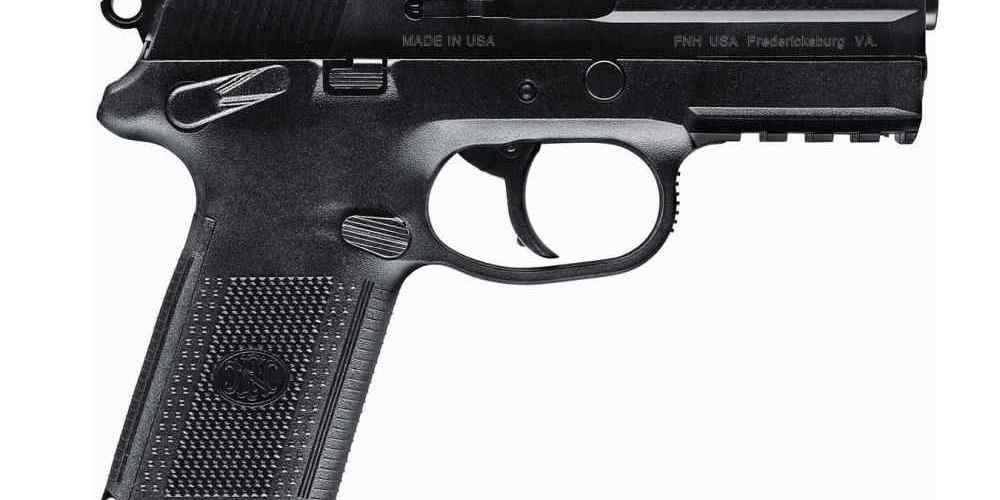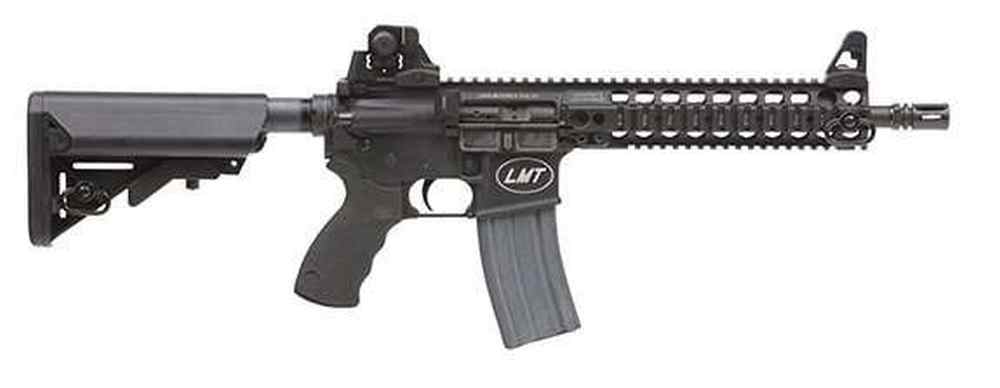“Exploring the complex world of global firearm trade.”
Trends in Global Arms Sales
The international arms market is a complex and ever-evolving industry that plays a significant role in global security and geopolitics. One of the key aspects of this market is the trade of firearms, which are bought and sold by countries around the world for various purposes, including national defense, law enforcement, and private security.
In recent years, there have been several trends in global arms sales that have shaped the landscape of the international arms market. One of the most notable trends is the increasing demand for small arms and light weapons, such as pistols, rifles, and machine guns. These weapons are often used in conflicts and civil unrest, making them a lucrative market for arms manufacturers.
Another trend in global arms sales is the rise of emerging markets as major players in the industry. Countries like India, Brazil, and South Korea have seen significant growth in their arms exports in recent years, challenging traditional arms exporters like the United States and Russia. This shift in the market has led to increased competition and innovation among arms manufacturers, as they seek to capture a larger share of the global arms trade.
One of the driving factors behind the growth of the international arms market is the increasing demand for military technology and advanced weaponry. Countries are constantly seeking to upgrade their defense capabilities, leading to a rise in the sales of high-tech weapons systems, such as drones, missiles, and cyber weapons. This trend has created new opportunities for arms manufacturers to develop cutting-edge technologies and expand their market share.
The global arms market is also influenced by political and economic factors, such as international conflicts, arms embargoes, and trade agreements. These factors can have a significant impact on arms sales and shape the dynamics of the international arms market. For example, arms embargoes imposed on certain countries can restrict their ability to purchase weapons, while trade agreements can facilitate arms sales between countries.
Despite the challenges and controversies surrounding the international arms market, it continues to thrive as countries around the world invest in their defense capabilities. The market is driven by a complex web of factors, including military needs, technological advancements, and geopolitical considerations. As the global arms trade continues to evolve, it is important for policymakers, arms manufacturers, and the public to closely monitor trends in the market and ensure that arms sales are conducted responsibly and ethically.
In conclusion, the international arms market is a dynamic and multifaceted industry that plays a crucial role in global security and defense. Trends in global arms sales, such as the demand for small arms, the rise of emerging markets, and the growth of military technology, shape the landscape of the market and drive innovation among arms manufacturers. As the market continues to evolve, it is essential for stakeholders to stay informed and engaged in order to promote responsible and ethical arms sales around the world.
Impact of Arms Trade on Global Security
The international arms market plays a significant role in shaping global security dynamics. The trade of firearms and other weapons has far-reaching implications for countries around the world, impacting everything from conflict resolution to national defense strategies. Understanding the impact of arms trade on global security is crucial for policymakers, military officials, and the general public alike.

One of the key ways in which the arms trade affects global security is through its role in fueling conflicts. The availability of weapons on the international market makes it easier for warring parties to arm themselves, prolonging conflicts and increasing the likelihood of violence. In many cases, arms sales to one side of a conflict can tip the balance of power, leading to further escalation and instability.
Arms trade also has implications for regional stability. The influx of weapons into a particular region can disrupt the existing balance of power, leading to increased tensions and the potential for conflict. This is particularly true in regions where there are existing rivalries or unresolved territorial disputes. The presence of large quantities of weapons can make it more likely that these disputes will escalate into violence.
Furthermore, the arms trade can have a negative impact on human rights. In many cases, weapons sold on the international market end up in the hands of repressive regimes or non-state actors who use them to commit human rights abuses. The proliferation of weapons can make it easier for these actors to carry out atrocities, leading to widespread suffering and loss of life.
The arms trade also has economic implications for countries involved in the buying and selling of weapons. For countries that are major arms exporters, the arms trade can be a lucrative source of revenue. However, this economic benefit comes at a cost, as it can perpetuate conflict and instability in other parts of the world. For countries that are major arms importers, the arms trade can drain resources that could be better spent on social programs or economic development.
In order to address the impact of arms trade on global security, it is important for countries to work together to regulate the international arms market. This can be done through multilateral agreements such as the Arms Trade Treaty, which aims to establish common standards for the import, export, and transfer of conventional weapons. By working together to regulate the arms trade, countries can help prevent the proliferation of weapons and reduce the likelihood of conflict and human rights abuses.
In conclusion, the international arms market has a significant impact on global security. From fueling conflicts to destabilizing regions and perpetuating human rights abuses, the arms trade has far-reaching implications for countries around the world. By working together to regulate the arms trade, countries can help promote peace and stability and protect human rights. It is crucial for policymakers, military officials, and the general public to understand the impact of arms trade on global security and work towards solutions that promote peace and security for all.
Key Players in the International Arms Market
The international arms market is a complex and highly lucrative industry that involves the buying and selling of firearms, ammunition, and other military equipment on a global scale. This market is dominated by a few key players who have a significant impact on the trade of weapons around the world.
One of the largest players in the international arms market is the United States, which is the world’s largest exporter of arms. The US has a long history of producing and selling a wide range of weapons, from small arms to advanced military technology. The country’s defense industry is a major contributor to its economy, and it plays a crucial role in shaping global security dynamics.
Another major player in the international arms market is Russia, which is known for its high-quality weapons and military equipment. Russia has a strong presence in the global arms trade, and it is a key supplier of weapons to countries in the Middle East, Asia, and Africa. The country’s defense industry is a key driver of its economy, and it plays a significant role in shaping global security dynamics.
China is also a major player in the international arms market, with a growing presence in the global trade of weapons. China has a rapidly expanding defense industry, and it is increasingly exporting its weapons to countries around the world. The country’s arms exports are a key source of revenue for its defense industry, and they play a significant role in shaping global security dynamics.
Other key players in the international arms market include European countries such as France, Germany, and the United Kingdom, which are major exporters of weapons and military equipment. These countries have well-established defense industries that produce a wide range of weapons, from small arms to advanced military technology. They play a crucial role in shaping global security dynamics and are key suppliers of weapons to countries around the world.
In addition to these major players, there are also a number of smaller countries that are significant exporters of arms. Countries such as Israel, South Korea, and Turkey have well-developed defense industries that produce high-quality weapons and military equipment. These countries play a key role in shaping global security dynamics and are important suppliers of weapons to countries around the world.
Overall, the international arms market is a complex and highly competitive industry that is dominated by a few key players. These countries have a significant impact on the trade of weapons around the world, and they play a crucial role in shaping global security dynamics. As the demand for weapons continues to grow, these key players will continue to play a central role in the international arms market.
Regulations and Policies Governing Global Firearm Trade
The international arms market is a complex and highly regulated industry that involves the buying and selling of firearms and other weapons across borders. In order to ensure that this trade is conducted in a safe and responsible manner, there are a number of regulations and policies in place that govern global firearm trade.
One of the key organizations responsible for regulating the international arms market is the United Nations. The UN has established a number of treaties and agreements that aim to prevent the illicit trade of firearms and other weapons. One of the most important of these is the Arms Trade Treaty, which sets out guidelines for the import, export, and transfer of conventional weapons.
In addition to international agreements, many countries have their own regulations and policies governing the trade of firearms. These can vary widely from one country to another, but generally include measures such as background checks for buyers, restrictions on the types of weapons that can be bought and sold, and limits on the number of firearms that an individual can own.
One of the biggest challenges in regulating the international arms market is the presence of illegal arms dealers who operate outside of the law. These individuals and organizations often engage in the trafficking of weapons to conflict zones and other areas where they can be used to commit violence and human rights abuses. In order to combat this illegal trade, governments around the world are working together to improve information sharing and enforcement efforts.
Another important aspect of regulating the global firearm trade is the issue of arms embargoes. These are restrictions imposed by the UN or individual countries that prohibit the sale or transfer of weapons to specific countries or regions. Arms embargoes are often put in place in response to human rights abuses or armed conflicts, and are intended to prevent the further escalation of violence.
In recent years, there has been growing concern about the role of the internet in facilitating the illegal trade of firearms. Online marketplaces and social media platforms have made it easier for individuals to buy and sell weapons without proper oversight or regulation. In response to this threat, many countries are working to strengthen their laws and regulations governing online firearm sales.
Overall, the regulation of the international arms market is a complex and challenging task that requires cooperation and coordination among governments, international organizations, and law enforcement agencies. By working together to enforce existing regulations and develop new policies to address emerging threats, we can help ensure that the global trade of firearms is conducted in a safe and responsible manner.
The Economics of the International Arms Market
The international arms market is a complex and often controversial industry that plays a significant role in global economics. The trade of firearms and other weapons is a lucrative business that involves a wide range of players, from governments and military organizations to private companies and individuals. Understanding the economics of the international arms market is essential for grasping the impact it has on the world economy.
One of the key factors driving the international arms market is the demand for weapons by governments and military organizations around the world. Countries invest heavily in their defense capabilities, often purchasing large quantities of firearms, ammunition, and other military equipment to ensure their security and protect their interests. This demand creates a steady stream of business for arms manufacturers and suppliers, fueling the growth of the global arms trade.
In addition to government demand, there is also a significant market for firearms among private individuals and organizations. Civilian gun ownership is a contentious issue in many countries, with some advocating for stricter regulations and others defending the right to bear arms. The availability of firearms for civilian purchase varies widely from country to country, with some nations having strict gun control laws and others allowing widespread access to guns.
The international arms market is also influenced by geopolitical factors, such as conflicts and tensions between countries. Arms sales often spike during times of political instability or military conflict, as nations seek to arm themselves against potential threats. The arms trade can exacerbate existing conflicts by providing weapons to warring parties, leading to increased violence and instability.
Another important aspect of the international arms market is the role of arms manufacturers and suppliers. Companies that produce firearms and other military equipment operate on a global scale, selling their products to governments and organizations around the world. These companies compete for contracts and strive to innovate and develop new technologies to stay ahead in the market.
The economics of the international arms market are also influenced by regulations and restrictions imposed by governments and international organizations. Arms sales are subject to strict controls in many countries, with regulations governing the export and import of weapons to prevent the proliferation of arms and ensure they do not fall into the wrong hands. Violations of these regulations can result in sanctions and other penalties for companies involved in the arms trade.
Despite the controversies surrounding the international arms market, it remains a significant driver of economic activity around the world. The trade of firearms and other weapons generates billions of dollars in revenue each year, supporting jobs and industries in countries that produce and sell arms. The arms trade also has broader economic impacts, influencing global trade patterns and contributing to the growth of related industries such as logistics and security services.
In conclusion, the international arms market is a complex and multifaceted industry that plays a crucial role in global economics. Understanding the economics of the arms trade is essential for grasping its impact on the world economy and the broader implications for peace and security. By examining the demand for weapons, the role of arms manufacturers, and the influence of regulations and restrictions, we can gain a better understanding of the dynamics of the international arms market and its significance in the global economy.




